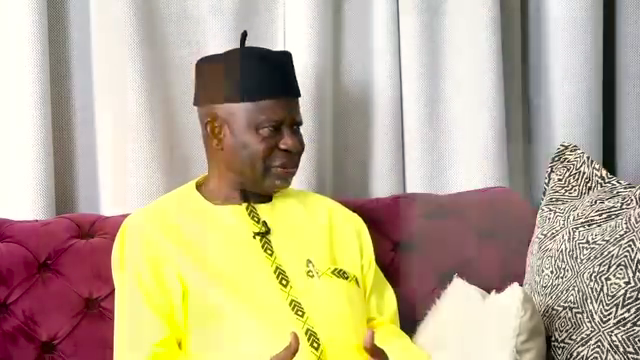Gambiaj.com – (BANJUL, The Gambia) – The leader of The Gambia’s main opposition United Democratic Party (UDP), Ousainou Darboe, has sharply criticized President Adama Barrow’s recent State of the Nation Address (SONA), labeling it a “propaganda agenda” for the upcoming 2026 presidential elections. Speaking on West Coast Radio’s “Coffee Time with Peter Gomez,” Darboe particularly took aim at the President’s foreign policy approach and the handling of the recent OIC Summit, while also shedding light on the UDP’s internal dynamics and succession plans.
Darboe, a veteran politician and legal luminary who attended the SONA as a matter of national respect, did not mince words in his assessment. “It was certainly a checklist of a propaganda agenda,” he asserted, suggesting the address lacked substance and genuine commitment to addressing the nation’s pressing issues.
A Call for Robust OIC Diplomacy
A significant portion of Darboe’s critique focused on President Barrow’s role as the current Chairman of the Organisation of Islamic Cooperation (OIC), especially in the context of the escalating Iran-Israel conflict. Darboe argued that merely calling for peace from the Gambian National Assembly was insufficient.
“As chairman [of the OIC], you ought to do more than that. As chairman, you ought to engage others,” Darboe emphasized. He called for a more proactive and engaged diplomatic strategy, urging President Barrow to leverage the “political weight” of the 57 OIC nations to seek genuine solutions to global conflicts.
“If this war had broken out when you were still Minister of Foreign Affairs, what would have been your role?” Gomez probed. Darboe responded that he would have urged the President to take concrete steps, suggesting an alliance with the African Union to address not only the Middle East but also crises in Sudan and Myanmar.
Darboe lamented the current approach as a “missed opportunity” for The Gambia to make a significant global impact.
Furthermore, Darboe dismissed the recent OIC Summit hosted by The Gambia as “certainly not successful,” citing the notable absence of most heads of state.
He envisioned a more ambitious summit where OIC leaders would also focus on the economic and social conditions of member states, advocating for wealthy Arab nations to invest within Muslim-majority countries to foster self-sufficiency.
Domestic Policy: Promises vs. Reality
On the domestic front, Darboe questioned the government’s priorities, particularly regarding electricity and agriculture. He viewed the distribution of “free” electricity meters as a political ploy ahead of the 2026 elections, questioning the financial viability given NAWEC’s dire situation.
He also criticized the persistent issues with electricity supply despite promises of universal access.
Darboe strongly advocated for a greater investment in agriculture, suggesting that a significant portion of funds currently allocated to road infrastructure should be redirected to support farmers and achieve food self-sufficiency.
Citing a Mandinka proverb (You must have enough food before you concentrate on roads), he underscored the importance of feeding the population before focusing solely on infrastructure development.
He also proposed that the State of the Nation Address should evolve into a “scorecard,” where the President reports on the implementation and achievements of promises made in previous addresses, rather than merely making “declarations of intent year in, year out.”
UDP Internal Dynamics: A Father’s Guidance and Planned Succession
Addressing persistent rumors of “internecine warfare” within the UDP, Darboe welcomed the public’s concern, interpreting it as a testament to the Gambian people’s hope in the party. He stressed his commitment to ending internal “domestic squabbles,” both public and private.
Darboe affirmed that aspiring to leadership within the UDP is “okay,” drawing parallels with political traditions in other democracies. However, he drew a firm line at undermining fellow party members. “What is not okay is really to undermine each other,” he stated.
Looking to the future, Darboe outlined a clear succession plan for the party leadership. He emphasized that the party congress, not his personal preference, would choose his successor.
He also pledged to give “at least two years notice” before stepping down, allowing ample time for candidates to emerge and for any internal disagreements to be resolved before the leadership election.
He described his relationship with prominent younger party figures like Rohie Malik-Lowe, Yankuba Badjie, and Talib Bensouda as that of a “father figure” who guides his “offspring.”
While acknowledging that some have made public statements they later regretted, he prefers to address such matters internally and judge individuals by their subsequent comportment rather than public commentary.
He reiterated that his interactions with them are based on their elected party roles, not personal favoritism.
The interview painted a picture of a resolute opposition leader, critical of the government’s performance and keen to articulate a clear alternative vision for The Gambia, while also managing the internal aspirations and dynamics within his own party ahead of future electoral contests.










